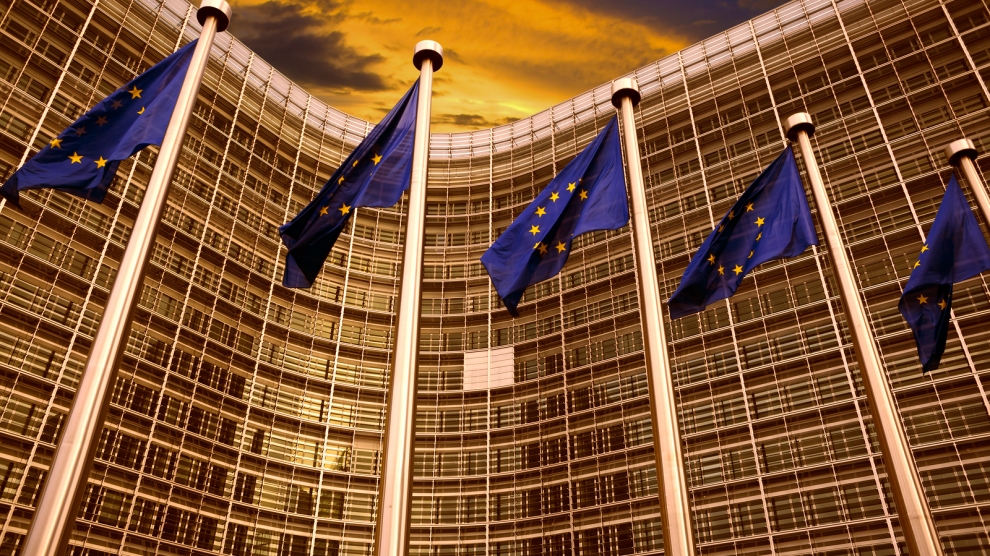The European Commission has announced 3.3 billion euros of European Union financial support, mobilised jointly with the European Investment Bank, for the Western Balkans (Albania, Bosnia and Herzegovina, Kosovo, Montenegro, North Macedonia and Serbia). The package aims to address the immediate health and resulting humanitarian needs of the Covid-19 pandemic as well as help with the social and economic recovery.
In addition to the reinforced support, the Commission has, in its contribution ahead of the EU-Western Balkans’ leaders meeting of May 6, also outlined the broad parameters of longer-term support to be presented later this year in the form of an Economic and Investment Plan for the region.
“We have a special responsibility to assist in this pandemic our partners in the Western Balkans, as their future clearly lies in European Union,” said President of the European Commission Ursula von der Leyen. “The EU is mobilising a substantial financial package, confirming our strong solidarity. Together we will overcome this crisis and recover. And beyond that, we will continue to support the region, including with the reforms needed on their EU path, as the recovery will only work effectively if the countries keep delivering on their commitments.”
Commissioner for Neighbourhood and Enlargement, Olivér Várhelyi, added: “The European Union acted quickly and comprehensively to support the Western Balkans in addressing the Covid-19 pandemic, with unparalleled financial assistance as well as access to many of the EU’s initiatives. And our work will continue as we prepare an Economic and Investment Plan for the region, to tackle the hard socio-economic impact of the crisis, to modernise the economies in the region, support the reforms and start closing the development gap, thus bringing concrete benefits to the people faster.”
The EU financial support package includes reallocations from the Instrument for Pre-Accession Assistance of 38 million euros of immediate support for the health sector, in particular through delivering essential supplies to save lives, such as personal protective equipment, masks and ventilators; 389 million euros to address social and economic recovery needs and an economic reactivation package of 455 million euros, in close cooperation with international financial institutions. It also includes a proposal for 750 million euros of macro-financial assistance and a 1.7 billion euros package of assistance from the European Investment Bank.
The EU is also providing immediate humanitarian assistance to vulnerable refugees and migrants amounting to 4.5 million euros and eight million euros to address pressing needs in migrant camps across the region.
As a result of the coronavirus outbreak, the Western Balkans have also activated the Union Civil Protection Mechanism (UCPM) and have already started to receive assistance through delivery of equipment and repatriation of citizens from the UCPM member and participating states. Furthermore, given their European perspective, the EU is treating the Western Balkans as privileged partners by granting them access to many initiatives and instruments reserved for EU member states. This includes for instance joint procurement of medical equipment, exempting the region from the EU’s export authorisation scheme for personal protective equipment, ensuring the fast flow of essential goods across land borders through “green lanes”, and the EU supply of testing material to ensure the correct functioning of coronavirus tests in the Western Balkans. The region is also associated to the work of relevant health bodies.
The Western Balkans will require continued support to address the impact of the pandemic once the immediate crisis is over. The European Commission will later in the year come forward with an economic and investment plan for the region, to spur the long-term recovery, boost economic growth and support reforms required to move forward on the EU path.
It will also include a substantial investment package for the region. For the 2021-2027 period, the Commission has proposed a total envelope for the Pre-Accession Instrument III of 14.5 billion euros, of which the lion’s share is destined for the Western Balkans. The Commission foresees a doubling in the provision of grants through the Western Balkans Investment Framework and substantially increasing the financial guarantees to support public and private investment in the region through a dedicated guarantee instrument under the Western Balkans Investment Framework.
The Commission believes that green transition and digital transformation will play a central role in relaunching and modernising the economies of the Western Balkans. Investing in clean and digital technologies and capacities, together with a circular economy, will help create jobs and growth. Support will also be provided to improve the competitiveness of the economies of the Western Balkans, to better connect them within the region and with the EU, and to help make the Western Balkans fit for the digital age. A strong focus will be put on the transport and energy links, which are crucial for the economic development of the region and the EU alike.
However, the Commission has warned that the recovery from the current crisis will only work if partners keep delivering on their reform commitments and produce tangible results in their implementation, also key to realising their European perspective. In addition to continued economic reforms, this requires a stronger focus on the rule of law, the functioning of democratic institutions and public administration.
EU heads of state and government, and those of the Western Balkans, will gather on May 6 for an EU-Western Balkans’ leaders meeting to tackle common challenges. Initially foreseen as a summit in Zagreb, the meeting will, due to the Covid-19 pandemic, now take place via video conference.
—
Unlike many news and information platforms, Emerging Europe is free to read, and always will be. There is no paywall here. We are independent, not affiliated with nor representing any political party or business organisation. We want the very best for emerging Europe, nothing more, nothing less. Your support will help us continue to spread the word about this amazing region.
You can contribute here. Thank you.









Add Comment